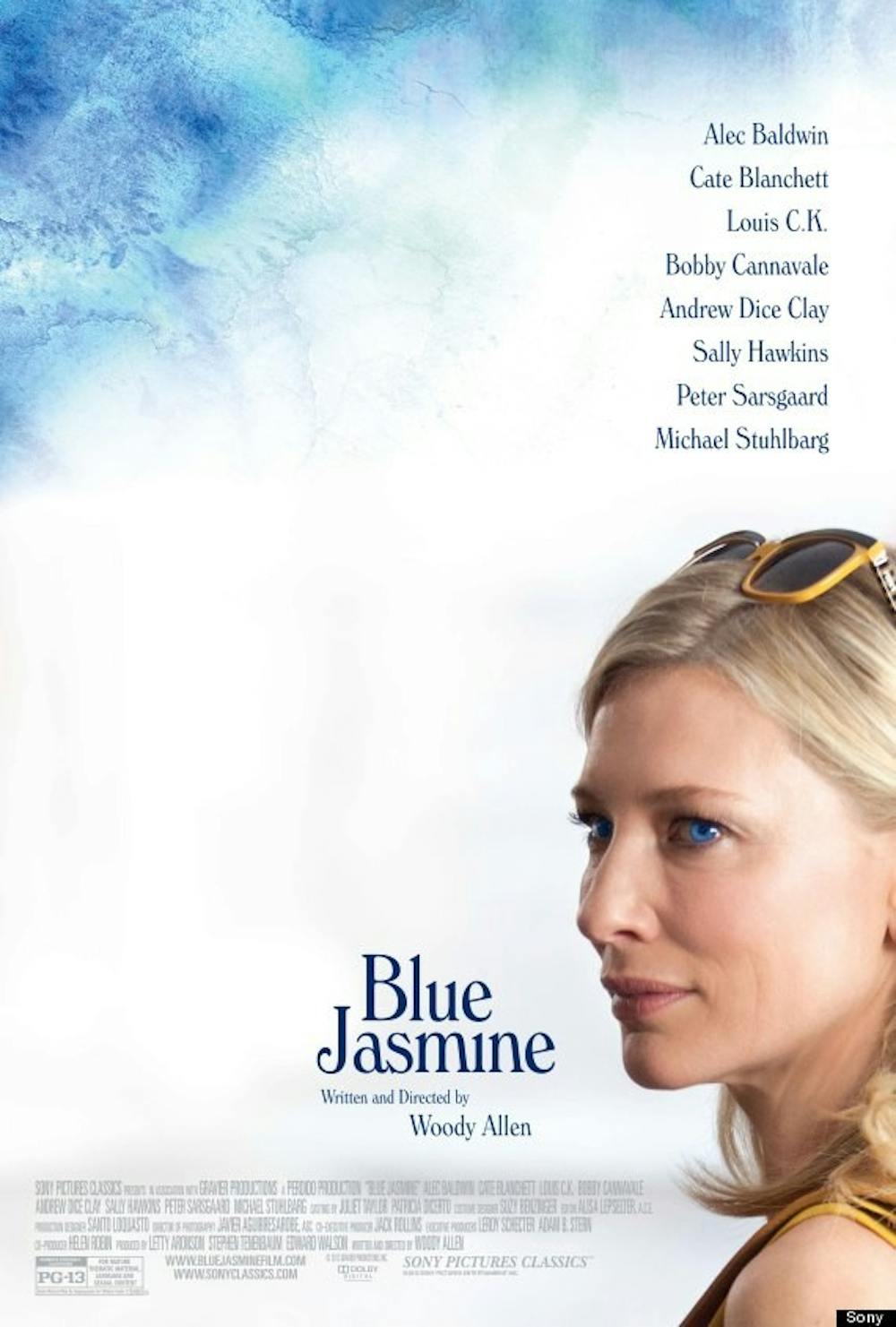Cate Blanchett shines as the self-centered leading lady
Cate Blanchett gives a stunning, Oscar-worthy performance in Woody Allen’s new film, “Blue Jasmine,” that proves the filmmaker is still one of the strongest voices in American cinema.
Blanchett plays Jeanette “Jasmine” Francis, a vapid, self-centered New Yorker and member of the 1 percent who is forced to move in with her sister, Ginger (Sally Hawkins), in San Francisco after her bigwig husband, Hal (Alec Baldwin), is arrested for years of cheating and stealing.
Jasmine drinks too much, speaks her mind without thinking twice and believes the world revolves around her. Both Allen, as screenwriter and director, and Blanchett, as the lead actress, bring great complexity and depth to the character, one of the best female roles Allen has ever written.
While Blanchett’s character seems narcissistic, there is a more complex woman underneath the cold exterior of sunglasses, martinis and Dior.
She seems clueless, failing to notice that her husband was cheating thousands of people out of their money and cheating on her with younger women. She has trouble relating with other people and breaks down mentally, starting to talk to people who aren’t actually there.
Allen is known for getting top talent to work in his films, often for less pay than they usually earn and without receiving a full script to read.
Everyone in the supporting cast is excellent. British actress Sally Hawkins (Allen’s “Cassandra’s Dream”) is absolutely believable as Ginger, a working-class, divorced mother of two. Stand-up comedian Andrew Dice Clay, who plays gives Ginger’s ex-husband, proves the most down-to-earth and empathetic character in the whole film.
Bobby Cannavale, who played the sadistic villain Gyp Rosetti in the third season of “Boardwalk Empire,” plays Ginger’s volatile boyfriend, Chili, who is alternately brutish and goofy.
Blanchett recetly played Blanche DuBois in “A Streetcar Named Desire” on stage, which only deepens the connection between this film and the Tennessee Williams play.
Both feature troubled, mentally unstable women who move in with their sisters and unpredictable boyfriends and think they have found love again.
In “Blue Jasmine,” Jasmine starts dating a wealthy man in San Francisco who dreams of a political career. She lies to him time and time again, digging herself deeper into a hole that she should know she can’t dig herself out of. Like DuBois in “Streetcar”, she is delusional and “relies on the kindness of strangers.”
Woody Allen, the 77-year-old auteur, has directed an average of a film a year since 1966; “Blue Jasmine” is his 44th theatrical film.
Because Allen rapidly writes, directs and shoots his pictures so quickly, their quality varies.
And while he has a distinctive style, he is also one of the most eclectic filmmakers working today.
He started out in the 1960’s with “early, funny ones” like “Bananas” and “Sleeper” and moved on to more mature films like the Best Picture Oscar-winning “Annie Hall.” Since then, he has gone between comedy and drama ever since, with brief forays into mockumentaries, musicals and thrillers.
But “Blue Jasmine” is harder to peg as a comedy or a drama.
It features many laugh-out-loud moments, but Jasmine and her story leave them awash in sadness.

